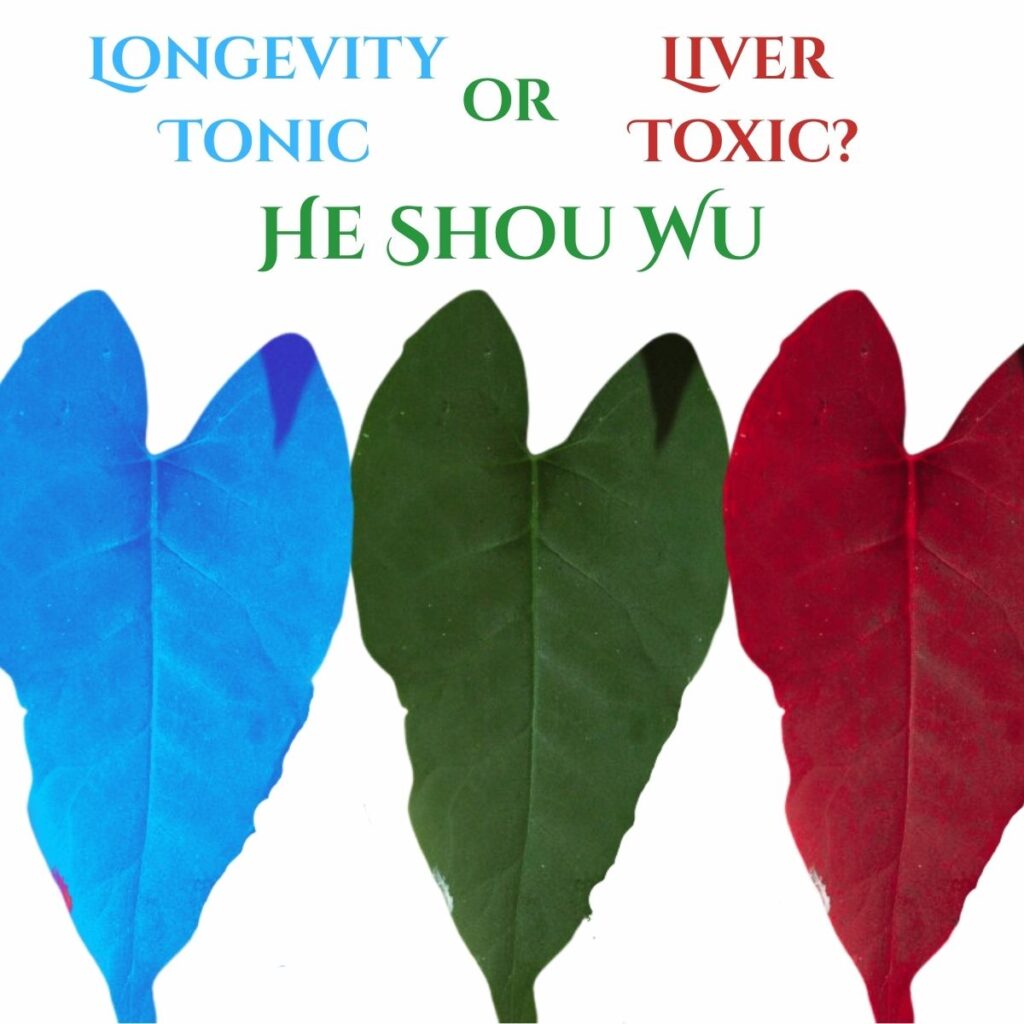With its heart-shaped leaves and vining habit, He Shou Wu (aka. Fo-Ti; Reynoutria multiflora, syn. Polygonum multiflorum, syn. Fallopia multiflora) has a centuries-old history with legendary origins linked to vitality and longevity.
In Traditional Chinese Medicine, He Shou Wu’s processed root (prepared with black soy beans) is used as a tonic for longevity, and vitality, believed to nourish the liver and kidneys, strengthen bones, and combat premature aging. Folk remedies employ the root for treating hair loss, greying, sexual dysfunction, insomnia, and various chronic diseases, while external applications (of the unprocessed herb) address skin conditions like sores and wounds.
Traditionally it is mainly used as a male reproductive herb and longevity tonic, and also for premature greying of hair. Although He Shou Wu is known as an adaptogen, and a popularly known herb, it has now been linked to several cases of liver damage, so is deemed possibly unsafe.
An interesting recent study demonstrated that specially processed He Shou Wu (braised Polygoni Multiflori Radix, or BPMR) had dramatically reduced liver toxicity compared to unprocessed forms, with processing increasing polysaccharide content and reducing toxic substances. This supports longstanding traditional claims that appropriate preparation (such as braising or decocting with black soy beans) not only enhances medicinal benefits but also diminishes risks of hepatotoxicity, an adverse effect increasingly reported in unprocessed or insufficiently prepared commercial extracts.
Different preparations of the herb are used differently—the processed He Shou Wu used more as a cardiovascular tonic and immune stimulant, and the unprocessed for its laxative effects. It is important for the reports of liver damage to be more fully researched for clinical recommendations to be made going forward.
Through scientific investigation, various activities, such as antioxidant, anti-inflammatory, antitumor, antidiabetic, antibacterial, antiatherosclerotic, hepatoprotective, nephroprotective, immunomodulatory, anti-aging, and neuroprotective activities have been found, attributed to compounds like stilbene glycosides, anthraquinones, and resveratrol analogues.
*This content is for informational and educational purposes only. It is not intended to provide medical advice or to take the place of such advice or treatment from a personal physician.

